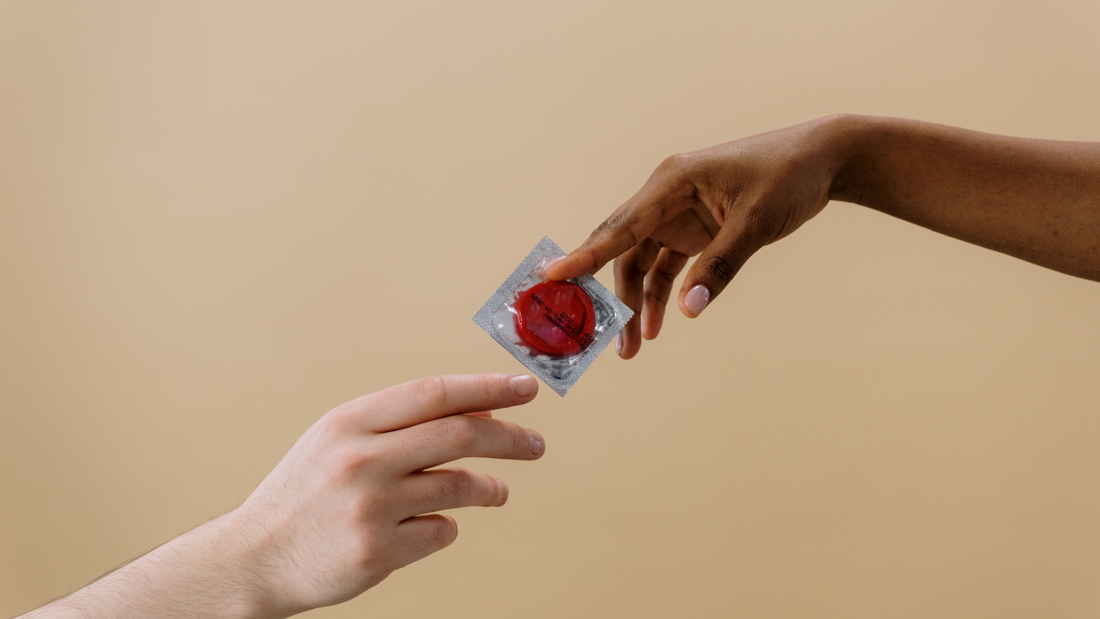
Papillomavirus: What you need to know to better protect yourself
Share
Papillomavirus: a discreet but common virus
You may have heard of the human papillomavirus (HPV) but not really know what it is. And you're not alone! The human papillomavirus , often abbreviated to HPV (for Human Papilloma Virus ), is one of the most common viruses in the world . It affects both women and men, often without symptoms, but can lead to complications if left untreated.
At Maholi, we believe in uninhibited, informed, and natural intimate health. So today, we're explaining everything to you: what exactly is the human papillomavirus (HPV), what the risks are, how to prevent it, and why it's so important to talk about it, without embarrassment.
🧬 What exactly is the papillomavirus?
The human papillomavirus (HPV) is a large family of viruses (over 200 types), about 40 of which can infect the genital area. Most infections are not serious and clear up on their own, but some types are high-risk and can cause precancerous lesions or cancers, particularly of the cervix, vulva, anus, penis, or throat.
➡️ In France, 8 out of 10 women will be exposed to the papillomavirus during their lifetime.
➡️ Transmission occurs mainly through sexual contact , including without penetration.
💉 The papillomavirus vaccine: a major prevention weapon
There is an effective vaccine against several types of human papillomavirus, including the most dangerous ones. Recommended for girls and boys as young as 11, it provides protection before exposure to the virus . The earlier the vaccine is administered, the more effective it is.
📌 Since 2023, vaccination has been offered in French middle schools for adolescents.
📌 The vaccine does not treat an existing infection, but prevents complications.
👉 Even if you're already sexually active, it's never too late to talk to your doctor.
🔍 Female papillomavirus, male papillomavirus: same fight!
Often considered a "women's issue," HPV affects everyone . In women, it can cause lesions on the cervix that can be detected by a smear test. In men, it often goes unnoticed but can also cause genital warts or cancer.
🛡️ HPV prevention: the right actions to take
In addition to the vaccine, there are several ways to reduce the risk of HPV infection:
- Use a condom : even if it does not provide 100% protection, it significantly reduces the risks.
- Have regular smear tests from the age of 25 for women, even those who have been vaccinated.
- Talk openly with your partner: HPV is often transmitted without you knowing.
- Strengthen your immunity : a balanced lifestyle helps your body defend itself naturally.
🧊 What about genital warts?
Some types of human papillomavirus can cause genital warts , also called condylomas . These small, benign growths, visible or not, appear on the vulva, vagina, penis or anus. They are often painless, but can become uncomfortable, irritating or cause discomfort in daily intimate activities.
Perineal cryotherapy (cold applied to the perineum) provides gentle, localized freshness and can be used as a wellness supplement to relieve inflammation or pain sometimes associated with these warts.
This practice is used using cold packs specially designed for the perineal area and provides localized relief and a reduction in pain.
Please note, however: this practice does not replace medical treatment , but can help you better manage your symptoms alongside monitoring by a healthcare professional.
✨ Conclusion: to be informed is to be free
Talking about the papillomavirus is lifting the veil on a subject that is still too taboo. It is neither shameful nor rare , and it is precisely because it is common that it is essential to act with prevention, gentleness and lucidity.
❓ Papillomavirus FAQ
Can the papillomavirus be cured?
In 90% of cases, the virus disappears on its own thanks to your immune system. But monitoring remains essential.
Is the vaccine mandatory?
No, but strongly recommended from 11 years old, for both girls and boys.
Can a test detect papillomavirus?
Yes, in women, an HPV test can be performed with a Pap smear. There is no systematic test for men yet.
Can you catch it even with just one partner?
Yes. The virus can be transmitted from the first intercourse, even without penetration.
Can cold relieve HPV symptoms?
In cases of local discomfort or inflammation, applying cold can have a temporary soothing effect. It is not a curative treatment but a good wellness supplement.
💡 Discover our tips for relieving vulvar varicose veins here




